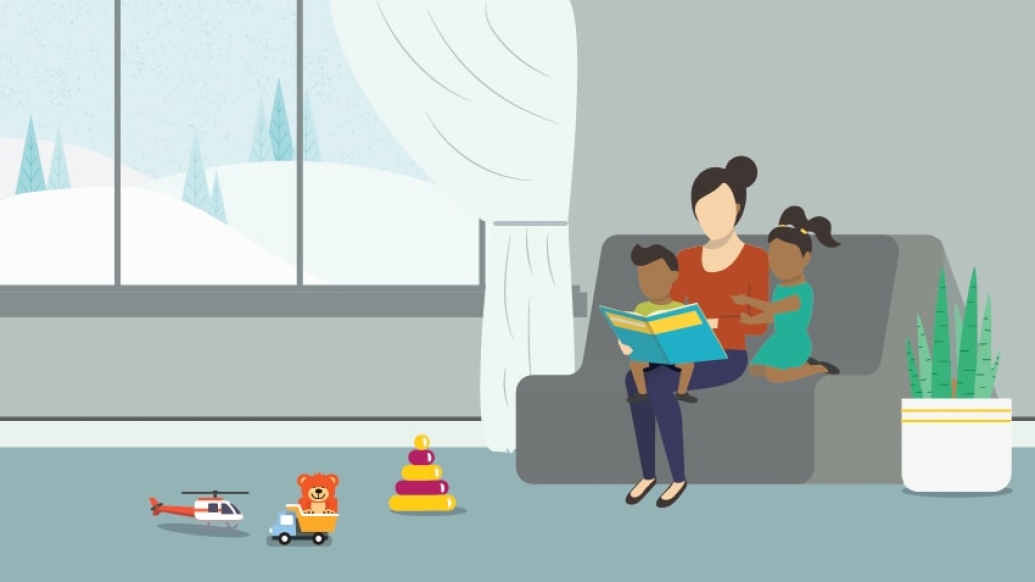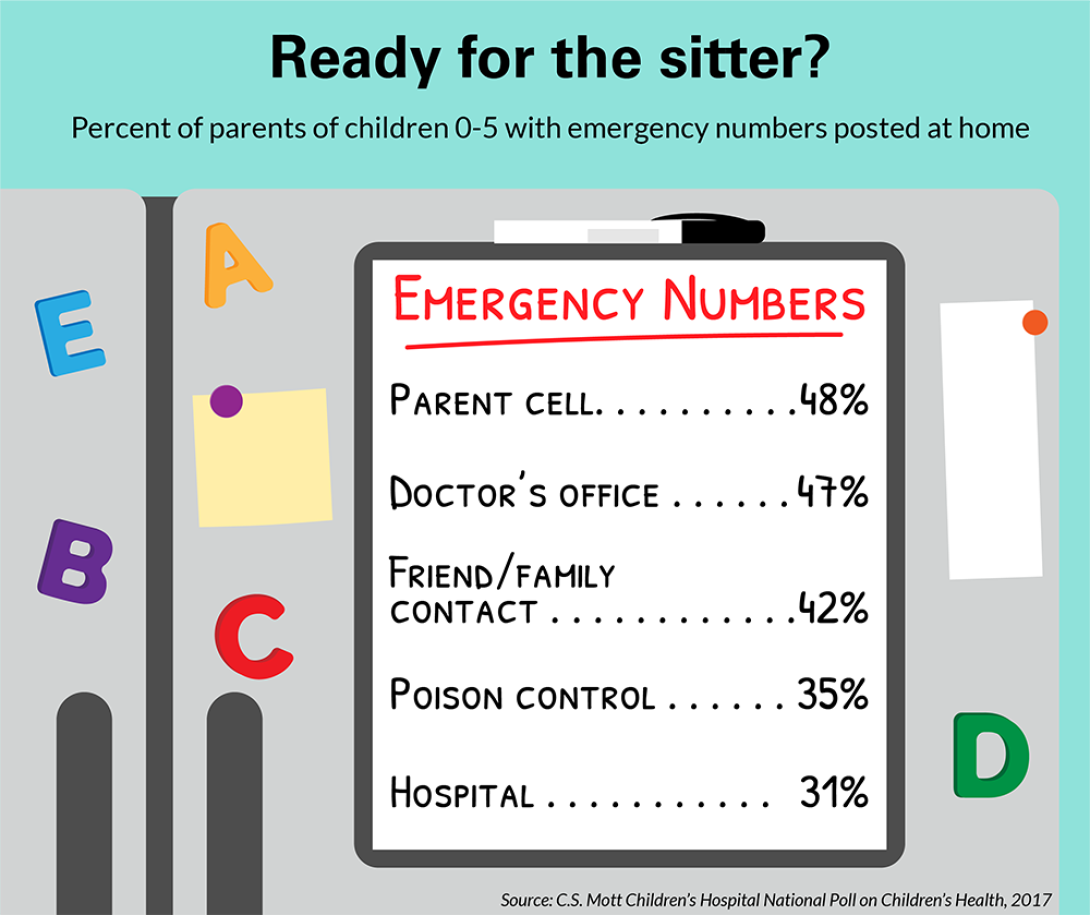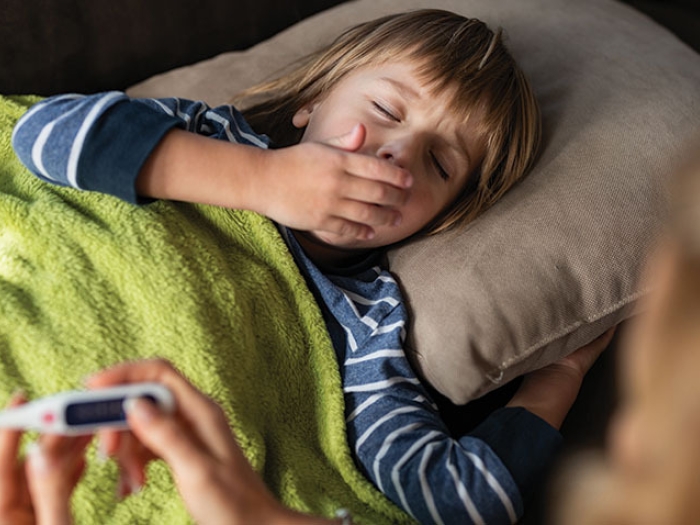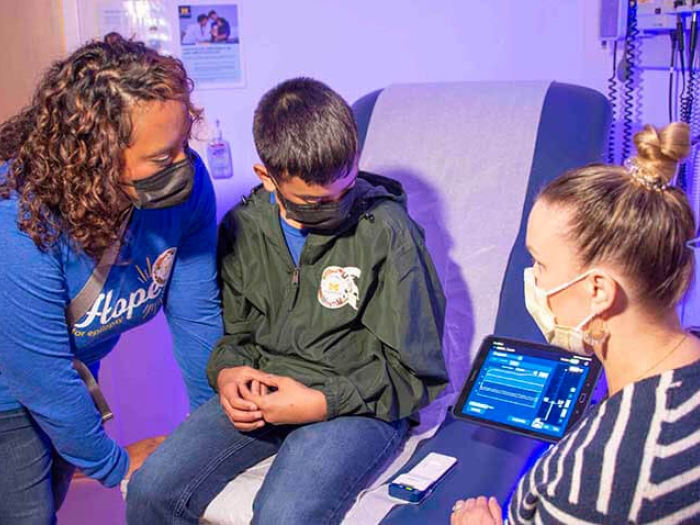Got a new (or last-minute) sitter? Follow these tips to make the exchange safe and stress-free for everyone.
7:00 AM
Author |

With the holidays in full swing, a time when child care centers might be closed or a trusted baby sitter could be busy, families may ask others to look after their little ones.
MORE FROM MICHIGAN: Sign up for our weekly newsletter
The person could be a relative, friend or neighbor. Those individuals might not know a child's routine or medical needs — and their home could have potential safety hazards.
"That person might be familiar with the child from spending time with them," says Elizabeth Hill, M.D., a pediatrician at University of Michigan C.S. Mott Children's Hospital.
"But unless they've done it before, it's likely they haven't thought about what's required to provide care."
It's why everyone should be on the same page before mom and dad depart.
A 2017 C.S. Mott Children's Hospital National Poll on Children's Health underscores that need. The poll, which surveyed parents with children up to age 5, found that fewer than half consistently provide sitters with their phone number. Even fewer share an emergency contact or the number of a doctor or nearby hospital.
The poll also surveyed adults without children. One-third of that group had no fears about being an impromptu baby sitter, but others cited concerns that included choking, head injury and a lack of basic knowledge about a young child's needs.
Preparation, regardless of a person's background, is key to avoiding problems.
"It helps the caregiver know what to expect and not make any guesses that might cause unrest in the child," says Hill. She shared advice for families and new sitters:

Preparing for a new baby sitter
Be available: Whether arranging a short stay or an overnight visit, parents should make sure a sitter can reach them. Provide cellphone numbers, a backup number (for the restaurant or destination) and those for emergency services. Post them on the refrigerator or in another go-to spot. "You don't want to waste time ruffling through things," Hill says.
Be vigilant: Your home is probably baby-proofed. Show a visitor the landscape — where the first-aid kid is kept and how to work the baby gate, for instance. Dropping off your child? Scope for issues that include stairs, household chemicals and pets. It might not be feasible to ask a host to anchor furniture to a wall, Hill says, so make problematic rooms off-limits.
SEE ALSO: Don't Let These 6 Toy Hazards Spoil the Holidays
Be curious: Every child is different. So even experienced baby sitters need to know your child's favorite foods and activities to help make the separation easier. You should also explain how your family addresses issues tied to behavior and routine, including rules and expectations.
Be prepared: Caretakers benefit from knowing how to perform CPR and first aid. Parents should clearly detail the child's illnesses, allergies and medications and how to handle scenarios such as choking, burns and injuries. Make sure your sitter knows when a trip to urgent care or the emergency room is necessary — and your preferred hospital. Families that live farther from hospitals were less likely to share details about those facilities, the poll found.
Be realistic: Not every person is a suitable baby sitter, even if he or she is willing to help. Consider the caretaker's needs and abilities. "Children may love spending time with grandma, but it can be a completely different physical challenge to chase them around," Hill says. The same applies to teenage sitters — ensure young helpers are trustworthy and up for the job.
For more on babysitter safety, visit MottChildren.org, and fill out Mott's worksheet of all the information your babysitter needs (PDF).

Explore a variety of health care news & stories by visiting the Health Lab home page for more articles.

Department of Communication at Michigan Medicine
Want top health & research news weekly? Sign up for Health Lab’s newsletters today!





